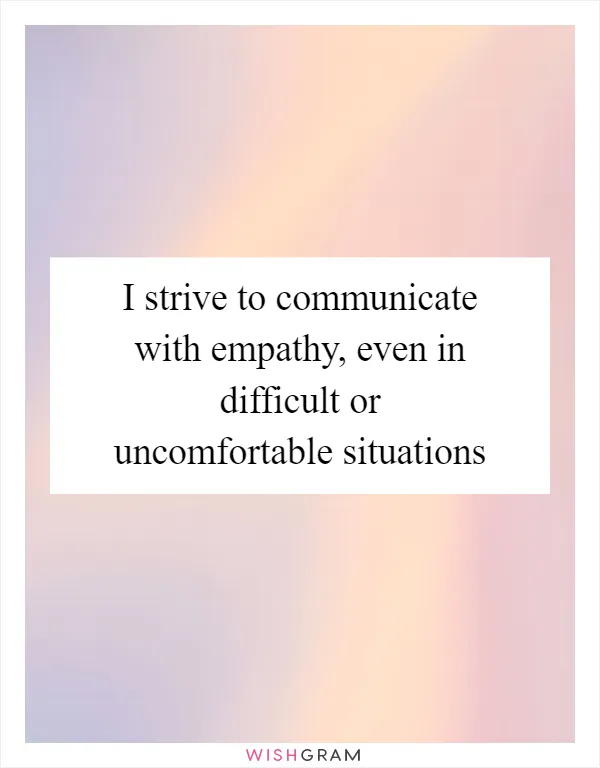I strive to communicate with empathy, even in difficult or uncomfortable situations
As human beings, we all have different ways of communicating with one another. Some of us are naturally good at it, while others struggle to express themselves effectively. However, one thing that we can all agree on is that communication is essential in our daily lives. It is how we connect with others, build relationships, and get things done. That is why the affirmation, "I strive to communicate with empathy, even in difficult or uncomfortable situations" is so important.
Empathy is the ability to understand and share the feelings of another person. It is a crucial aspect of effective communication because it allows us to connect with others on a deeper level. When we communicate with empathy, we are not just listening to what the other person is saying, but we are also trying to understand how they feel. This helps us to respond in a way that is compassionate and respectful.
However, communicating with empathy is not always easy, especially in difficult or uncomfortable situations. It can be challenging to put ourselves in someone else's shoes when we are feeling angry, frustrated, or upset. But it is precisely in these moments that empathy is most needed. By striving to communicate with empathy, we can diffuse tense situations, build trust, and strengthen relationships.
So, how can we communicate with empathy? The first step is to listen actively. This means paying attention to what the other person is saying without interrupting or judging them. It also means asking questions to clarify their thoughts and feelings. By doing this, we can gain a better understanding of their perspective and respond in a way that is respectful and compassionate.
Another way to communicate with empathy is to validate the other person's feelings. This means acknowledging their emotions and letting them know that we understand how they feel. For example, if someone is upset about a situation at work, we might say, "I can see that this is really frustrating for you. I'm sorry that you're going through this".
